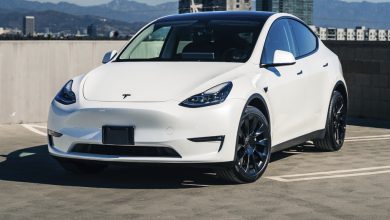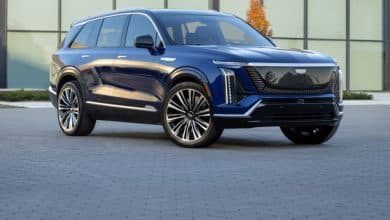United States | Electric vehicle sales record

Electric vehicle sales are expected to reach a record 9% of all passenger vehicles in the United States this year, compared to 7.3% of new car sales in 2022, according to figures released by Atlas Public Policy .
It will be the first time more than 1 million electric vehicles have been sold in the United States in a calendar year, likely reaching between 1.3 million and 1.4 million cars, the research firm predicts.
Although data shows significant progress in electrification, the country lags behind countries like China, Germany and Norway.
Electric vehicles reached 33% of sales in China, 35% in Germany and 90% in Norway for the first six months of 2023, according to the BloombergNEF EV outlook released in June. These figures include both battery electric vehicles and plug-in hybrid electric vehicles.
Figures revealed at the end of 2022 by the Canada Energy Regulator also showed a constant increase in purchases of electric vehicles in the country.
In these countries, ambitious government zero emissions targets, tax incentives and vehicle subsidies, and affordable options play a role in consumers’ decision to adopt a plug-in vehicle.
Several factors have helped boost electric vehicle adoption in the United States this year, but in a nutshell, prices have fallen.
Tesla, the current market leader in electric vehicles, has lowered the prices of its popular vehicles several times throughout the year. This forced other automakers to try to follow suit. Additionally, automakers are now offering larger incentives on their electric models, and dealers are offering deeper discounts as the supply of electric vehicles builds up at dealerships.
The Inflation Reduction Act, which increased tax credits for purchases of qualifying new and used electric vehicles, also helped lower the cost of electric vehicles for buyers, from US$3750 or US$7500, depending on certain conditions.
Battery costs for electric cars are also falling because the key materials that go into their production ― like lithium ― are cheaper, making the vehicles increasingly affordable.
However, even though the market share of electric vehicles in the United States is steadily increasing, some electric car buyers still face obstacles. Early buyers of electric vehicles were largely high-income people, willing to try unfamiliar technology and more likely to be able to charge their electric vehicles at home. The auto industry must address disparities related to these factors when targeting the next wave of electric vehicle buyers.
According to BloombergNEF, for many consumers, the unreliability and inaccessibility of public charging infrastructure, as well as the high upfront cost of going electric, remain obstacles. As of last month, new electric vehicles still cost an average of US$3,826 more than the average new car, or US$51,762 versus US$47,936, according to estimates from Kelley Blue Book.
To address some infrastructure issues, several major automakers have embraced Tesla’s charging technology. Tesla has long used the North American charging standard for its electric vehicle outlets and also has the most powerful public charging network.
The rest of the industry has largely used a network called CCS (Combined Charging System). Integrating Tesla’s technology will give non-Tesla electric vehicle drivers more opportunities to charge elsewhere and alleviate charging issues. But these changes won’t start to be felt until next year and 2025.
The industry also faces fears of a slowdown in the electric vehicle market. Some automakers, including Ford and General Motors, are lowering their electrification goals.
But at the same time, many foreign automobile companies are strengthening their projects. Consumers can expect Chinese electric vehicle makers, such as BYD, to make their way into the U.S. market in the coming years.
Several American states have set deadlines for the sale of predominantly non-polluting vehicles. California and Washington state have mandated that 100% of new vehicles sold in the state be zero-emission by 2035, while New Jersey will ban the sale of new gasoline-powered vehicles by the same time. year.












